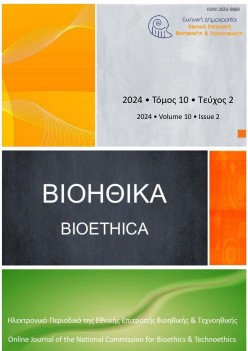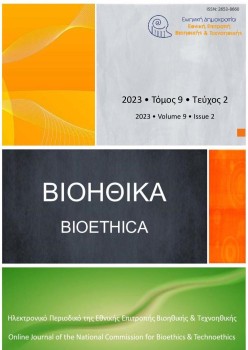Interreligious perspectives on Surrogate Motherhood
Abstract
Surrogate motherhood raises a variety of ethical, legal, theological, and sociological questions. Discussions on this topic often become heated, particularly when considering the use of a woman's body to carry a pregnancy on behalf of another individual—married or unmarried, male or female—with an ovum that, in most cases, has no biological connection to her and is legally recognized as belonging to the commissioning party or parties post-birth. On one side, issues of self-determination, solidarity, and compassion are debated, while on the other, dignity, the sanctity of life, commodification, and exploitation are concerns. This article, without overlooking these significant issues, attempts an interreligious examination of surrogate motherhood to elucidate how the three major monotheistic religions, along with Hinduism and Buddhism, assess, interpret, and understand this practice. The aim is to highlight both converging and diverging positions across different views and to more fully comprehend the various theological and cultural dimensions that shape the contemporary bioethical understanding of this issue.
Article Details
- Zitationsvorschlag
-
Ladas, I. (2024). Interreligious perspectives on Surrogate Motherhood. Bioethica, 10(2), 39–54. https://doi.org/10.12681/bioeth.39043
- Ausgabe
- Bd. 10 Nr. 2 (2024): Bioethica
- Rubrik
- Reviews

Dieses Werk steht unter der Lizenz Creative Commons Namensnennung 4.0 International.
Authors who publish with this journal agree to the following terms:
- Authors retain copyright and grant the journal right of first publication with the work simultaneously licensed under a Creative Commons Attribution CC BY 4.0 License, which allows for immediate free access to the work and permits any user to read, download, copy, distribute, print, search, or link to the full texts of articles, crawl them for indexing, pass them as data to software, or use them for any other lawful purpose. Appropriate credit must be given by citing the author(s) and the original publication in this journal.
- Authors are able to enter into separate, additional contractual arrangements for the non-exclusive distribution of the journal's published version of the work (e.g. post it to an institutional repository or publish it in a book), with an acknowledgement of its initial publication in this journal.
We encourage authors to deposit their articles, as well as data underlying the publications, in institutional and/or other appropriate subject repositories.
Bioethica permits and encourages authors to archive the final publication pdf in institutional (e.g. the repository of the National Hellenic Research Foundation) or other appropriate subject repositories (e.g. SSOAR repository for social sciences), in compliance with institutional and/or funder open access policies, after publication in the BIOETHICA. Authors must provide bibliographic details that credit publication in the journal, as well as related funding details (when applicable).
Lists of institutional and other subject-based academic open access repositories can be found listed by country at the registry http://opendoar.org/countrylist.php
If your institution does not possess a repository you may deposit a copy of your paper at no cost with www.zenodo.org , the repository supported for open access research in the EU by the European Commission, through the project OpenAIRE (www.openaire.eu )




